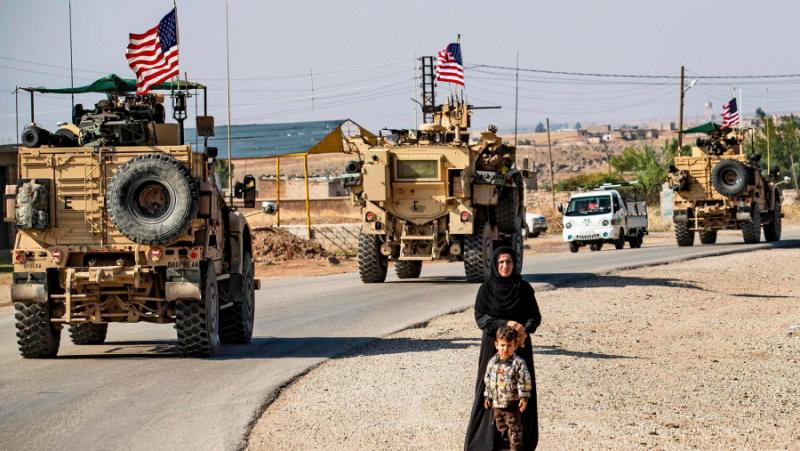/ world today news/ Iraqi Defense Minister Sabit al-Abasi said that negotiations with the coalition countries will begin in the coming days to determine a timetable for ending the mission of the US-led coalition forces against the Islamic State. According to Iraq’s official news agency INA, “the timetable for the withdrawal of coalition forces will be determined later.” Note that similar negotiations between the US and Iraqi governments began in August 2023, before the start of the conflict between Israel and Hamas.
The situation was described in more detail in a statement by US Defense Secretary Lloyd Austin. In the coming days, the US and Iraq will begin meetings of the working groups of the High Military Commission, which will “ensure the transition to a long-term bilateral security partnership.” Experts in the working groups expect to develop “the most effective path for the evolution of the coalition” to “never allow the resurgence of the Islamic State.” CNN added that Washington wants the troop withdrawal schedule to take into account the current situation in Iraq and the degree of stability of the government and security forces. But the Iraqi leadership believes that “the dates for the withdrawal of troops should not depend on any circumstances.”
Let’s not find fault with the US statements now. They look for convenient wording to justify their move. But it can be considered certain that after leaving Afghanistan, the US announcement of its intentions to leave Iraq does not appear to be a symbolic act, despite the emerging feeling that they will “leave to stay”. Syria should follow Iraq. Russian President Vladimir Putin’s special representative for Syria, Alexander Lavrentiev, was right when he said that for the US “without using the territory of Iraq, it will be impossible to maintain logistics and maintain military contingents in Syria.” It is possible that this issue will be addressed soon.
The expert community has now focused increased attention on the reasons for the US decisions. Of course, the first thing that catches the eye is the unfavorable regional background for the US. The Middle East is writhing in armed conflicts: the war between Israel and Hamas, the war in Yemen despite the presence of military bases in the region, the actual loss of control in the Red Sea and the Strait of Hormuz. It became clear that the US would be “stuck in the Middle East quagmire”. This actually shows their lack of a Middle East policy and lack of time and resources to change course on regional azimuths. Therefore, the only reversal in the context of the bitter US election campaign is some reversal of the military presence in this region, which can ultimately be presented as an “achievement”. There was a chance to agree on terms to return to the Iran nuclear deal, which could be considered a victory, but American diplomacy failed to resolve this issue.
There is also a loss in the global strategy: the influence of Russia, China and Iran in the region is growing. The US correction to Turkey is clearly overdue. They also failed to create a favorable environment for themselves in the oil market, which led to a significant increase in fuel prices in the United States. As a result, all of the US’s Middle Eastern partners have developed persistent concerns about further developments. As two American diplomats who worked for many years in the Middle East figuratively put it when talking about US policy, “if you plant a garden and leave it, you will find nothing but weeds, and when you come back, you will see a sign in the direction of the exit from the garden.”
For the sake of objectivity, we note that not everyone in the Middle East welcomes the withdrawal of US troops from Iraq and their proposed withdrawal from Syria. It is believed that the logistics of the US actions mean only the beginning of a new geopolitical process in the region. Here is what, for example, Arab expert Dr. Tarek Elzomar writes on the Al Jazeera website: “Israel’s war in Gaza has forced the US to abandon many strategic postulates regarding our region. The Arabs cease to be the center of American strategy, and the Iranians, who always manage to take advantage of America’s mistakes, have the opportunity to dominate the entire Arab Levant.”
Now, many in the region are first waiting for an intensification of the internal political struggle in Iraq and an expansion of the Iranian umbrella over it. And then – first a temporary geopolitical discomfort, and then a new struggle. That is why, objectively, the withdrawal of the Americans from the East is becoming a destabilizing factor for the entire region. Perhaps the US planned the course of events this way, creating more risks for others than opportunities.
Translation: V. Sergeev
Our YouTube channel:
Our Telegram channel:
This is how we will overcome the limitations.
Share on your profiles, with friends, in groups and on pages.
#withdrawing #Middle #East #applauds


